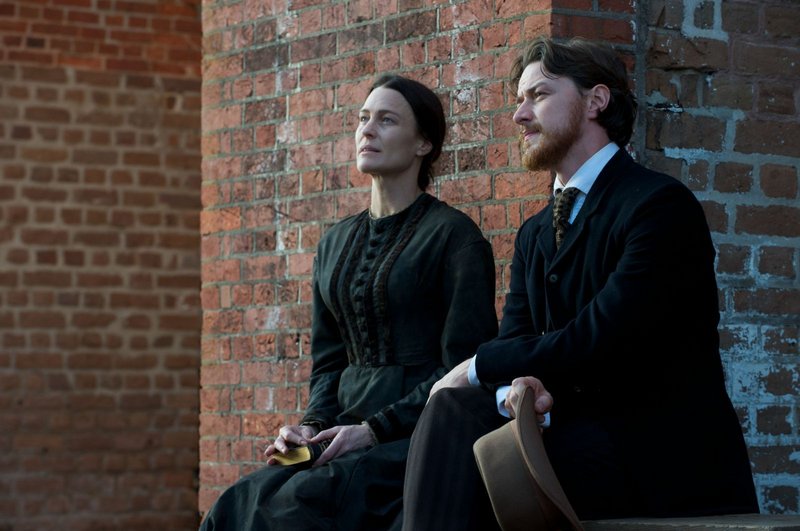A battle-scarred lawyer starts to wonder what he was fighting for when he faces a military court bent on revenge and a nation willing to forget the Constitution to have that revenge in “The Conspirator,” Robert Redford’s courtroom drama about the Lincoln assassination.
There’s barely a hint of a great filmmaker working with a fraction of his normal budget in this wonderfully cast and carefully shot period piece, which focuses on Mary Surratt, one of the people accused of conspiring to murder President Lincoln.
James McAvoy plays Frederick Aiken, an officer just recovered from combat as the war is in its last days, a man whose chief hope is to restart his life and marry the girl (Alexis Bledel) who waited for him while he fought for the Union.
But one night of terror — the murder of the president, the attempted murder of the secretary of state — interrupts that. The movie vividly recreates those attacks and the attempted escape and capture of the assassins.
As the capital quakes with shock, the roundup of those who could be found connected in any way to the plot begins. The secretary of war, Edward Stanton (Kevin Kline, in a fine fury), fumes “Damn the rebels, damn them all to hell,” and sets up a military court to try those accused, among them Surratt (Robin Wright), who ran a boarding house where John Wilkes Booth and others met.
“A military trial of civilians is an atrocity,” Sen. Reverdy Johnson (a perfect Tom Wilkinson) declares. It’s a regular Inquisition. He shames Aiken into joining the cause.
Aiken is a reluctant defense attorney, inexperienced in such trials. And few lawyers of the day would have been prepared to face a kangaroo court of the sort Stanton assembled to railroad the accused to the gallows. They’re all Union Army officers (Colm Meaney is the meanie in charge). They seem hell-bent on dispensing with considering evidence. Surratt’s son was involved and has fled the country. Her house is where the conspirators met. And she’s a Southerner. Guilty!
Wright plays Surratt as a defiant but resigned Catholic woman who won’t give away her son’s whereabouts, no matter what conditions she is imprisoned under and no matter what fate awaits her. Even her daughter (Evan Rachel Wood), not in prison and forced to bear the brunt of the city’s fury at her family, can’t dissuade her.
The trial itself is both a comedy of injustice and a parade of great character actors — Stephen Root is a shifty member of the Surrat circle, Shea Whigham is a soldier who puts loyalty ahead of the truth. McAvoy does well at suggesting a lawyer forced to relearn his old career on the fly, challenging evidence to no avail, tripping up dishonest witnesses. And the screenplay shows us the price Aiken himself started to pay, the social cost in taking an unpopular case.
Redford and cinematographer Newton Thomas Sigel, who shot “Leap Year” in a lovely, soggy Irish green, give the film sepia-accented scenes in the court, hazy natural light putting witnesses, judges and the gallery in alternating bright light or dusty shadow.
It doesn’t quite come off as the allegory for our times Redford intended (he’s grown pretty preachy in his later years). But “The Conspirator” makes a fine addition to his resume. It can’t have escaped him that the great John Ford also tackled this subject with his movie about the doctor who unknowingly set the assassin Booth’s broken leg — “The Prisoner of Shark Island.” “The Conspirator” may not be as emotionally compelling as Ford’s work, but it’s every bit as meticulously crafted.
Send questions/comments to the editors.



Success. Please wait for the page to reload. If the page does not reload within 5 seconds, please refresh the page.
Enter your email and password to access comments.
Hi, to comment on stories you must . This profile is in addition to your subscription and website login.
Already have a commenting profile? .
Invalid username/password.
Please check your email to confirm and complete your registration.
Only subscribers are eligible to post comments. Please subscribe or login first for digital access. Here’s why.
Use the form below to reset your password. When you've submitted your account email, we will send an email with a reset code.